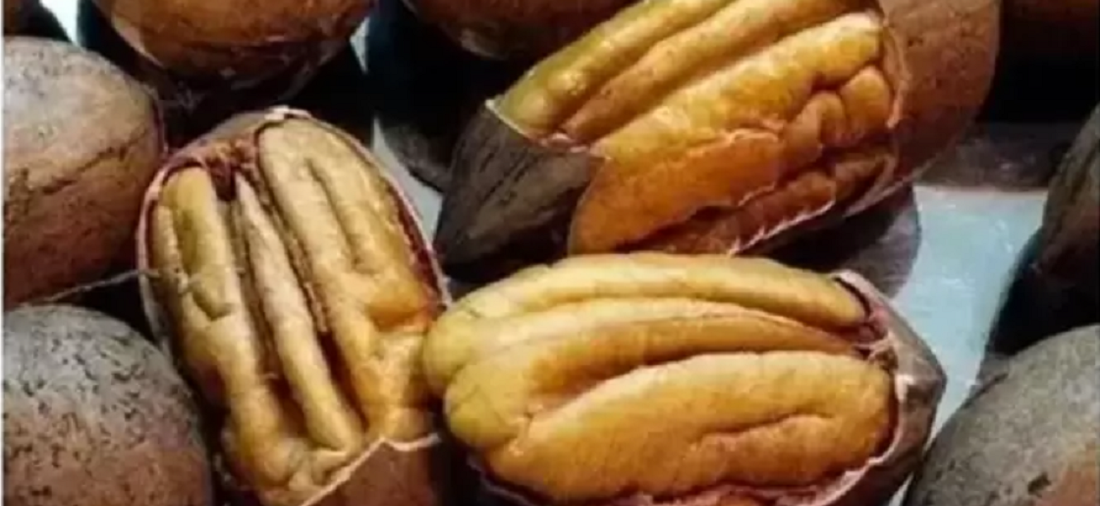
Brazilian pecan producers unite to expand exports andsecure stable prices
Sep, 14, 2023 Posted by Gabriel MalheirosWeek 202338
Since pecan nut producers in Rio Grande do Sul started meeting the requirements needed for export, the sector has increasingly tried to unite over the goal of selling abroad. Thus, an initial group of five producers formed a consortium and, last year, sold a 25-ton shipment of the fruit to the Middle East. For 2023, the group has expanded and is set to close the year with sales exceeding 100 tons.
In addition to the Middle Eastern buyer, who placed a repeat order, an Asian buyer has also acquired the pecans produced in Rio Grande do Sul. For the former, two 25-ton containers were negotiated, while the latter secured two 26-ton containers. The success of the consortium is encouraging for producers who rely on overseas sales for a stable price of $4.50 per kilogram for the Barton variety and $4.30 per kilogram for the fruit mix (CIF mode, where the seller or shipper is responsible for the freight cost until delivery to the customer). In the domestic market, apart from being lower, currently around R$ 14, the price is volatile and has reached R$ 16 per kilogram this year.
Demian Segatto da Costa, a lawyer working with the Brazilian Pecan Institute (IBPecan), explains that the consortium model facilitates meeting targets that smaller, family-based farmers would not be able to meet. One of these target goals is quantity. According to him, some small orchards do not produce, even at the height of their productivity, volumes that would reach the possibility of completely stuffing a container. Others, with a large planted area, are still young. “Even in orchards where there is already a higher volume, they do not produce multiples of 25 tons, so there is always a portion of this orchard that will have a production that would not allow the entire harvest to be exported,” explains the lawyer.
Another aspect where the model favors small producers is in the standardization of the shipped batch. Demian Costa details that, even though it is not a purchase of a single cultivar but rather a mix of fruits, buyers have certain requirements. “It needs to go through the same cleaning, drying, classification, empty nut extractor, quality testing, and sending of samples to the buyer,” he enumerates. This means that the batch is preferably processed at the same facility to achieve homogeneity. When the buyer receives the producer’s goods, there should be no noticeable significant differences between the volumes that make up the container, even if they come from various orchards.
Marcelo Salvador, who has an orchard in Arroio dos Ratos (RS), is one of the pioneers in consortium exports. He states that it was not the price itself that attracted him but the stability of knowing that he could produce and that there was someone to buy the harvest. “In fact, this decision led me to double the size of my orchard for the coming years,” says the producer. Salvador mentioned that selling to international markets brought security to his business, and he no longer worries at harvest time about whether he will sell, whether it will be at a fair price and whether he will receive payment. “There has been an appreciation for us as producers and for the culture as a whole,” he assesses.
Source: Notícias Agrícolas
To read the original news report, see: https://www.noticiasagricolas.com.br/noticias/agronegocio/359263-exportacoes-consorciadas-garantem-preco-estavel-aos-pecanicultores.html
-
Other Cargo
Feb, 21, 2022
0
Iran may triple urea exports to Brazil
-
Ports and Terminals
Jan, 27, 2025
0
São Francisco do Sul and Imbituba Set Cargo Volume Records in 2024
-
Shipping
Nov, 12, 2019
0
ANTAQ holds public hearing on maritime support charter by unauthorized companies
-
May, 02, 2025
0
Brazil Sees Over 300% Surge in Dairy Exports to China

